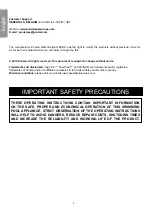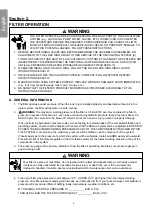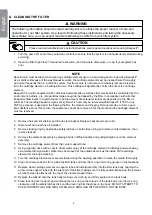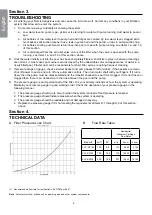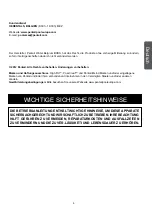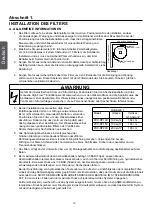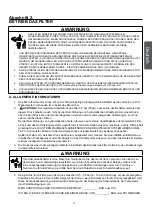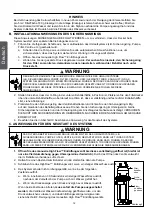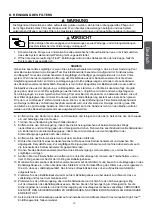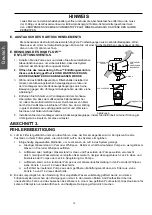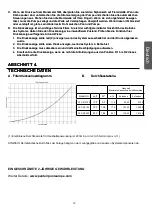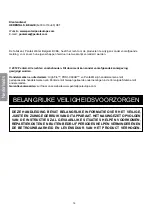
3
Section 1.
FILTER INSTALLATION
A. GENERAL INFORMATION
1. The filter should be mounted on a level concrete slab. Position the tank so that the instructions, warnings
and pressure gauge are visible to the operator. Also, position the filter so
that the piping connections, control valve and drain port are convenient and
accessible for servicing and winterizing.
2. Install electrical controls (e.g., on/off switches, timers control systems, etc.)
at least 1.5 meter from the tank, with enough room to stand clear of the filter
during system start up.
3. Provide sufficient clearance around the filter to permit visual verification that
the clamp is properly installed, see Figure 1.
4. Provide sufficient space above the filter to remove the filter lid for cleaning
and servicing. This distance will vary with the model of filter you are using.
See table 1, for the required vertical distance.
WARNING
Risk of electrical shock or electrocution. Position the filter and High Flow™ manual air relief valve to
safely direct water drainage and purged air or water. Water discharged from an improperly positioned
filter or valve can create an electrical hazard that can cause severe personal injury as well as damage
property.
5. When installing the High Flow™ manual air relief valve use the
O-ring only, there is no need for thread sealing compounds.
Position the filter to safely direct water drainage. Rotate the
valve to safely direct purged air or water. Water discharged
from an improperly positioned filter or valve can create an
electrical hazard as well as damage property.
6. Make all plumbing connections in accordance with local
plumbing and building codes. Plumbing connections are
provided with an O-ring seal. Use only a silicone base lubricant
on the O-rings. Do not use pipe joint compound, glue or solvent
on the bulkhead connections.
7. The base of the filter is provided with four (4) mounting bosses for the purpose of anchoring the tank to the
concrete.
8. The maximum working pressure of the filter is 3.5BAR (50 psi). Never subject the filter to pressure in excess
of this amount, even when conducting hydrostatic pressure tests. Pressures above 3.5BAR (50 psi) can cause
the lid to be blown off, which can result in severe injury, death or property damage.
When performing hydrostatic pressure tests or when testing for external leaks of the completed filtration and
plumbing system, ensure that the Maximum Pressure that the filtration system will be subjected to DOES NOT
EXCEED THE MAXIMUM WORKING PRESSURE OF ANY OF THE COMPONENTS CONTAINED WITHIN
THE SYSTEM. In most cases, the maximum pressure will be stated on each component of the system.
If doubt exists as to the pressure to which the system will be subjected, install an ASME approved automatic
Pressure Relief or Pressure Regulator in the circulation system for the lowest working pressure of any of the
components in the system.
SEPARATION
TANK
Figure 1.
English
TABLE 1
Model
Size
Vertical
Clearance Limit
PXC-RP100 100 sq.ft.
154 cm
PXC-RP150 150 sq.ft.
193 cm
PXC-RP200 200 sq.ft.
193 cm


